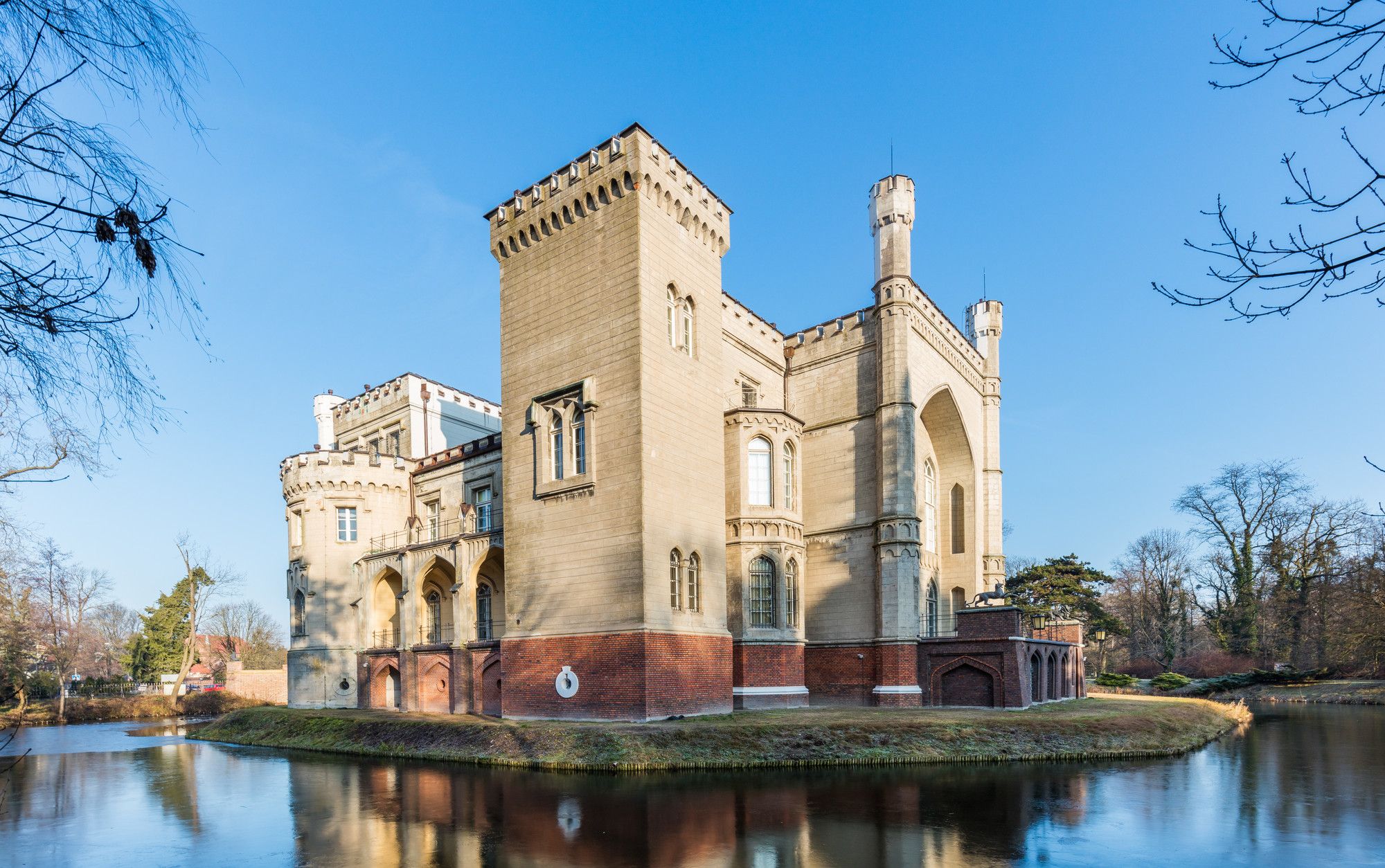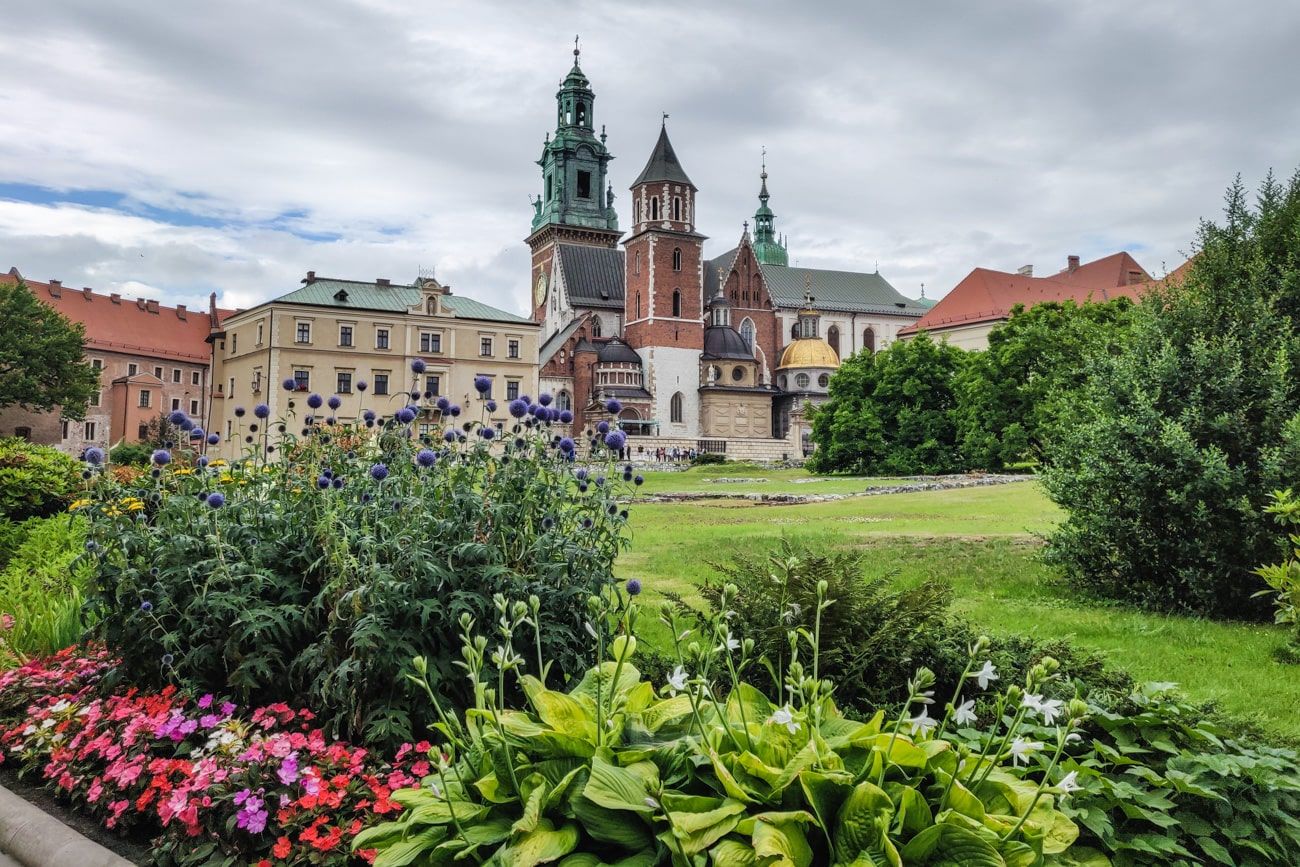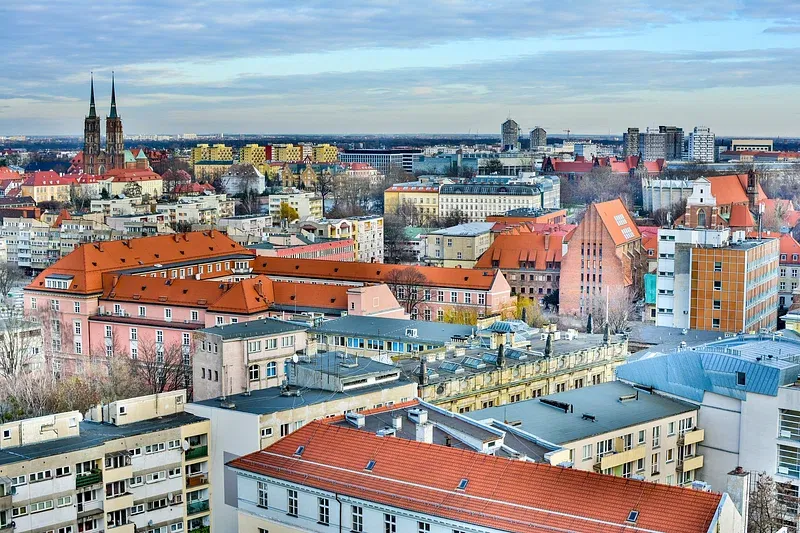CHAT
WITH US
WITH US
GET A
QUOTE
have questions? call us
+44 3330 907053

Moving Guides • Europe • 28 Aug 2024
Share this article
Thinking of moving to Poland from the UK? You might be looking for new job chances, lower costs, or just a change of view. We're here to guide UK citizens in Poland through the whole process. Now, British citizens living in Poland need to re-register their residency. They also must swap their old residence permit for the new residence card.
This is a key step after Brexit that UK people must follow. The British Embassy in Warsaw and the UK's Foreign, Commonwealth & Development Office will be a big help. They offer tips on moving and keep you in the loop on the latest rules. It's a good idea to follow the British Embassy Warsaw on social media. This way, you won't miss any important updates.
Whether you're moving for a job or to be with family, this guide has you covered. It will help you understand everything you need to do to live as a UK expat in Poland.

Getting ready to move to Poland is more than just packing. Make sure you have a detailed checklist for a hassle-free move. It's important to know the local laws, customs, and what you need to enter the country. This can prevent any surprise problems later on.
Start by getting your papers in order for the move to Poland. After Brexit, document rules have changed. You'll need papers like residency proofs, visas, and the details for registering your new address in Poland, called zameldowanie. For folks from the UK, keeping an eye on embassy alerts and the 'Living in Europe' page can avoid issues.
Having a good plan can smooth out your move. Look up advice for moving to Poland like finding the best time to move weather-wise. Poland's winters can be very cold, with December temperatures dropping to -6°C. So, spring might be a better choice.
Another thing to think about is housing. In Poland, homes are often smaller than in other parts of Europe. Also, living costs can be high in big cities like Warsaw, Wroclaw, Poznan, and Gdansk.
If you're going to work in Poland, make sure to sort your work permit and visa early. And, for stays over 90 days, you'll need a long-term visa (Type D).
Planning to move to Poland means knowing about visas and residency. It's key for a smooth move. You'll need a visa based on how long you'll stay and why you're there.
There are different visas for various needs in Poland:
After Brexit, UK citizens moving to Poland face new rules. They need a valid passport and either a residence permit or a long-stay visa. You must show you lived there before January 1, 2021, to get a residence card.
The Brexit impact on residency for Brits is significant. Here's what they need to know:
Document Type | Required for | Additional Notes |
| C-Type Schengen Visa | Stays up to 90 days | Not to exceed 90 days in any 180-day period |
| D-Type National Visa | Stays exceeding 90 days | Maximum validity of one year |
| Dokument pobytowy dla beneficjenta umowy wystąpienia | Post-Brexit residency | Proof of residency before January 1, 2021, required |
| LTV Visa | Exceptional cases | Valid only in selected Schengen states |
By following these rules, dealing with visas, UK residency, and Brexit's effects is simpler. You'll find your move to Poland smoother.
It's key to make sure your passport is up to date when going to the Schengen area. For UK citizens, renewing a passport when not in the UK can seem tough. But if you know the rules, it's not so bad.
Your passport needs to be no older than 10 years. Also, it should be valid for at least three months past your planned exit from Poland or any Schengen country. Passports issued after 1 October 2018 last 10 years. But those from before might run longer if renewed early. Knowing this info can prevent any travel troubles.
British nationals visiting Schengen must follow Poland's rules too. Having a passport that meets these rules will help you cross borders smoothly. For British-Polish dual citizens, always use your Polish documents in Poland.
If you have two passports or live in Poland, there's good news. Anyone living there before 1 January 2021 needs to re-register their residence for a new card. Always carry your passport and residency proof to avoid problems. If you forget and your passport gets stamped, showing your residency proof later will fix this.
Here's a simple recap for British travellers on Poland's border and passport rules:
Passport Validity | Schengen Regulations | Poland Specifics |
| Issued within last 10 years | Valid for at least 3 months post-departure | Must use Polish ID for entry/exit if dual national |
| British passport renewal for expires soon | Ensure stamps for entry/exit | Re-register residency if living before 1 Jan 2021 |
Checking and updating your documents will make your travel far smoother. It also helps make sure you follow Poland's border rules correctly.
Accessing healthcare in Poland is key when moving from the UK. There are ways for UK nationals to get healthcare in Poland. Knowing your options is vital for smooth medical care.
In Poland, UK nationals need to follow some steps to get healthcare. If you work, part of your salary goes towards health insurance. This gives you free health services. But, some costs, like for prescription medicines, you might need to pay.
If you're self-employed or not working, your contribution cost depends on the national salary average.
First, you need a PESEL number to get public health insurance. This is a must for accessing healthcare as an expat. If you have a GHIC, EHIC, or S1 from the UK, you can use these too.
Looking into private health insurance is smart in Poland. It's good if you want quicker care or need specific medical facilities. International plans are available from companies like Allianz International and Cigna for UK nationals.
Privately insured individuals often get benefits, like free care in some Polish health facilities. This includes those not covered by the state system.
Private insurance helps cover extra costs, like prescription drugs. So, having good private insurance can make your healthcare better.
In an emergency, call 112 for general help. For specific needs, use numbers like 997 for police or 999 for an ambulance.
Knowing your healthcare options and getting properly registered is essential. This way, you can manage your health well in Poland, whether through public or private routes.

For those from the UK wanting to work in Poland, it's key to know about visas and tax. Getting a work permit for Poland and how it links to your National Insurance matters. This helps make your move easier.
UK citizens must get a work permit to work in Poland. There are different visas depending on your job. Certain jobs, like religious work or being an artist, might not need a visa for 90 days. Also, technical jobs for up to three months are sometimes visa-free if your UK employer is the producer.
Work permits for longer jobs can last up to three years. These need a detailed application. If you're moving within a company to its Polish office, this is called a Type C work permit. The process for this permit can take 2 to 5 months. If you lived in Poland before 1 January 2021, you need to update your residency too.
Understanding National Insurance is crucial when working in Poland. Your contributions might change if you move from the UK to work for a Polish company. It's important to know the impact on your insurance from both countries.
Knowing about UK-Poland taxes is vital to avoid problems. You must also understand how your insurance works, especially if you travel between the UK and Poland for work often. And, under the Withdrawal Agreement, you need to confirm your qualifications with Polish officials to work certain jobs.
Staying up to date on these issues makes working in Poland easier and more legal.
Planning to work in Poland means making sure your UK qualifications are recognised. Many jobs in the EU need this because they are controlled. This could mean proving your skills, taking tests, or joining a professional group.
To get your qualifications recognised in Poland, you first need certain documents. You have to show your qualifications, your work history, and maybe a language skill proof. Your application should be confirmed as received within a month.
Some jobs, like being a doctor or pharmacist, are easier to get approved. They are recognised fast. But for other jobs, you could be waiting up to three months for a decision.
The European Professional Card (EPC) is great for careers like nursing, pharmacy, physical therapy, guiding, and real estate. It makes applying and getting updates easier and faster.
Profession | Validity of EPC | Decision Timeframe |
| Pharmacists and Nurses (Automatic Recognition) | Indefinite for settlement 18 months for temporary services (public health) 12 months for temporary services | 2 months |
| Other Regulated Professions | Varies | 3 months |
If you've been recognised in another EU country for three years, you can use the EPC. It makes things simpler.
Some jobs might also ask for language tests or to join a professional group. In rare cases, you might need to give a written promise before starting work.
Knowing how to get your qualifications recognised in Poland makes things smoother. It also helps you follow local rules. This lets you use your UK qualifications well in Poland.

Moving from the UK to Poland? It's important to know about schooling. Poland mixes international and local curricula. This helps kids fit in easier when they change schools.
International schools in Poland are great for expat families. They use various country's teaching plans like British, American, and Japanese. This makes the transition for kids smoother. British-styled schooling is a hit with UK families in Poland. It keeps the education similar to what they know.
International schools are mostly in big cities such as Warsaw. They have small class sizes and teach in more than one language. This helps children from around the world learn together. Many expat kids choose these schools because they teach in a familiar way.
Did you know public schools in Poland are free until age 18? Even so, foreign kids might have to do a 'zero year' to learn Polish and get used to the teaching style. Private schools are an alternative. They often teach in two languages and are smaller. But, getting in might mean tests and interviews.
For older students, Polish universities are a good choice. Many have English programmes. This is good for students from the UK. Plus, some Polish degrees are known worldwide.
Going from a UK school to a Polish university might need some changes. But, Poland has IB schools that make it easier. These schools follow a global education model in English. They help students prepare for university life.
Thinking about schooling options in Poland? You have many choices. Whether it's international schools or Polish universities, Poland has diverse options. Choosing the right one will make your child's education worry-free.
The Polish tax system can be hard to understand, especially for those moving from the UK. Knowing the local tax laws and effective financial planning in Poland is very important. It makes your move and following the rules easier. If you're changing where you live or handling money matters, these facts will help you.
Living in Poland as a British citizen means you have tax responsibilities linked to your residency. Since 1 January 2022, those who lived in Poland before 2021, must update their residency status. It affects their taxes. Learning about Polish taxes is essential. Getting advice from tax professionals is wise. If you work for a UK company, find out if you need a visa according to Polish rules. Always check these details to avoid problems.
Good financial management reduces stress and keeps your money safe in Poland. First, get local healthcare as UK insurance may not pay for health abroad. Look at private healthcare options too. You should also think about financial planning. This includes how to bank, paying fewer taxes, and where to invest. Working with financial specialists can make dealing with money from the UK easier. Especially if you have investments or assets in more than one country.
Now, let's compare handling money in Poland and the UK.
Aspect | Poland | UK |
| Tax Residency | Must re-register for residency; local taxation rules apply | Depends on global income and residency status |
| Healthcare | Mandatory registration or private cover | NHS provided; private insurance optional |
| Visa Requirements | Possible need for work or residency visa | Right to work without a visa |
| Financial Services | Recommended to consult local financial advisors | Established banking and financial systems |
Knowing about the Polish tax system and financial preparations can help your move go smoothly. It's smart to talk to experts from the UK and Poland. They can guide you through this.

For British expats, the housing market in Poland can be both challenging and fruitful. Whether you aim to rent or buy, understanding Polish real estate is key. Your choice depends on your plans and money matters.
Looking for short-term or flexible living? Renting may suit you best. Apartments in Warsaw and Krakow can be expensive to buy. Yet, renting lets you test different areas first. If investing for the long haul, consider buying at lower house prices.
Poland's real estate scene is lively and full of chances for investors. Land prices vary across regions, like PLN 50,000/ha in Mazovia. The buying process includes steps like due diligence and contracts. Foreigners, even from the EEA, can buy property. However, some non-EU nationals may need a permit for specific real estate deals.
Beware of extra costs when buying. This includes 23% VAT on new builds and a 2% transaction tax. Notarial fees and registration costs also apply. Brokers may charge up to 6% in commission. The Otodom property portal can be a great aid with over 3500 developers listed. This platform provides a comprehensive view of the Polish real estate market, making it easier for expats to find suitable properties.
When considering property purchase, it's crucial to understand the legal process. Engaging a local real estate lawyer can help navigate the complexities of Polish property law and ensure a smooth transaction.
Choosing to rent or buy is crucial during your time in Poland. Consider help from businesses like "Deliver1" for your move. Staying informed will help you meet your moving goals.
Adapting to Polish culture is an essential part of your relocation process. Understanding local customs and social norms will help you integrate more smoothly into your new home.
While many Poles in urban areas speak English, learning Polish can significantly enhance your experience. Consider taking language courses to help you communicate in daily situations and understand cultural nuances.
Polish cuisine is hearty and delicious. Try local specialties like pierogi (dumplings), bigos (hunter's stew), and żurek (sour rye soup). Dining out is common, but home-cooked meals are also an important part of Polish culture.
Poland celebrates numerous festivals and holidays throughout the year. Some key events include:
Participating in these celebrations can provide valuable insights into Polish culture and history.
Maintaining connections with both your new Polish community and your ties back in the UK is important for a balanced expat life.
Joining expat groups can help you connect with fellow UK nationals and other internationals. Look for British expat communities in Poland on platforms like InterNations or Facebook.
To keep up with events back home, consider:
Moving to Poland? It's exciting, but also complex. Visas, healthcare, housing - it's a lot to handle. Let Deliver1 simplify your move. We'll handle the logistics so you can focus on your new adventure. Ready to make Poland your home? Contact Deliver1 today for a stress-free relocation.
Powodzenia! (Good luck!)
We love hearing from you-so please get in touch with any questions or queries.
We love hearing from you-so please get in touch with any questions or queries.
Working hours
Mon - Sat: 08:00 - 17:00
Sun: Closed
Call
+44 3330 907053Location
Unit 3, Newyears Green Lane
Newyears Green
Uxbridge
UB9 6LX
United Kingdom
